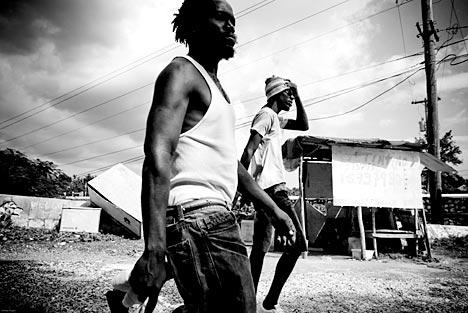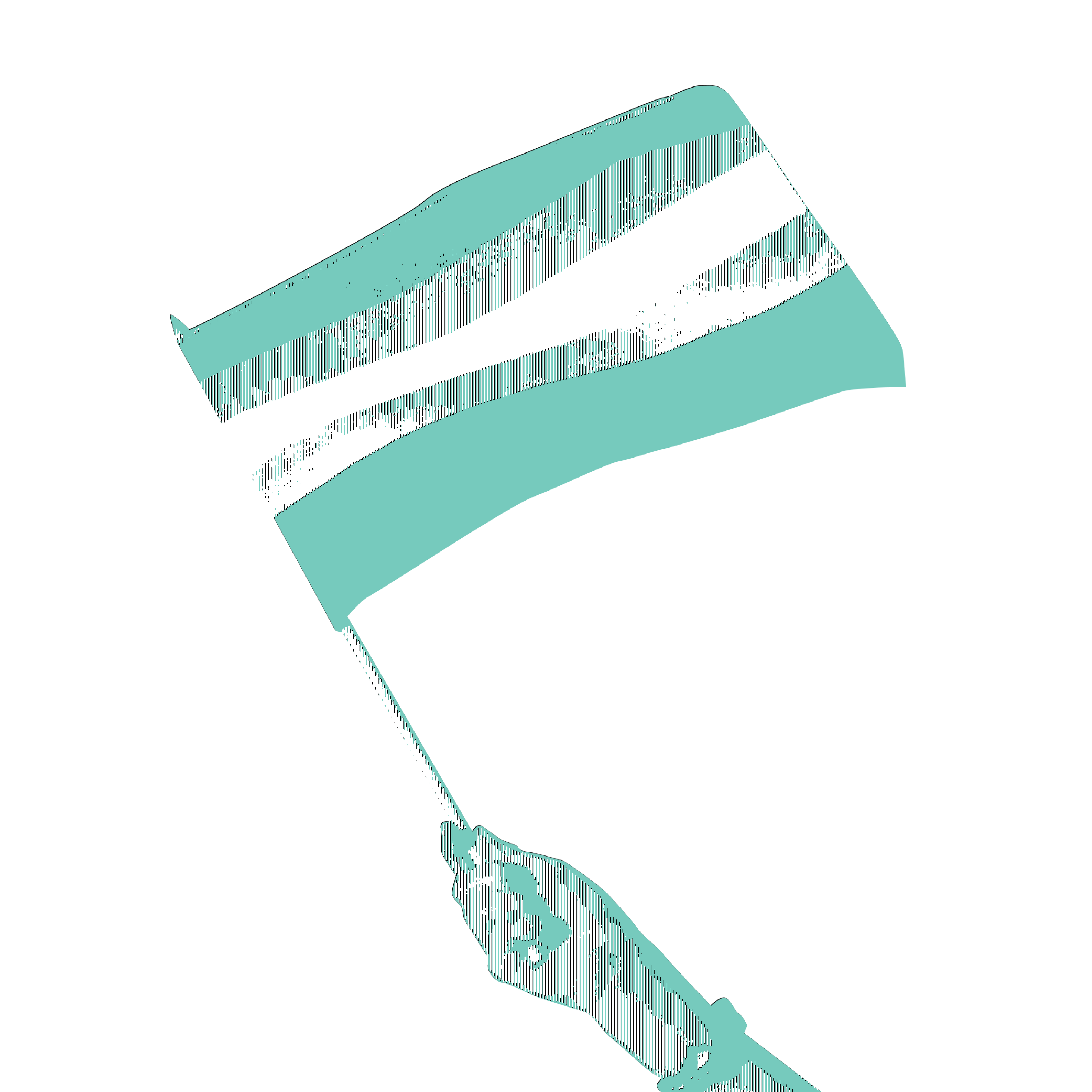
HIV/AIDS is a disease contracted in the most private of spaces; one that comes with a sense of betrayal, failure and attendant anxiety because somehow, a social contract between two people, a contract that is supposed to give pleasure and security, has produced death or its specter.
In a society like Jamaica, any talk about HIV/AIDS is going to be about secrets, about taboos, and about the private lives of people. I was talking to people about sex. I was talking to people about their mortality and its meaning. Many of them had lived with the disease for years, and others had learned they were infected a few months before.
This crisis has shown us the challenges we face as a culture in Jamaica – the way people behave sexually: the penchant for multiple partners, the disregard for safe sex practices, the highly sexualized society rooted in a deeply conservative cultural ethos, the ubiquitous reminder of homophobia at all levels of society, and so much more.
At the same time, the crisis has brought out the resourcefulness of Jamaicans, their generosity of spirit to help and support those who are suffering, the strength of character and wonderful capacity for humor and stoic resolve in the face of serious challenges, and the power of community. The story of HIV/AIDS in Jamaica is as much about those who are living with the disease as it is those who care for them. At the end of the day, all the stories become deeply personal.
The Good Soul
Ian McKnight, one of the founders of Jamaica AIDS Support for Life (JASL), would remember his own entree into this service that would come to consume his life for the next 20 or so years. Ian was taken into the world of death and suffering without really knowing where he was being led.
It was 1989. A man in Kingston was very ill. He was a young man, a 25-year-old man. He lived in an apartment building with at least one good neighbor, Joseph Robinson, a dancer, a community activist, and a good soul. The good soul knew that the man was sick and dying of AIDS. The good soul knew this because he had seen the early devastation of HIV/AIDS in New York. He started to care for the sick man. Then he began to solicit help for this man from his friends. His friends were reluctant and afraid at first, but he picked good friends, people he knew would respond because he had asked. He taught them that they could touch people with AIDS by touching the man with AIDS, by washing him, massaging him, praying and meditating with him, feeding him. And his friends learned how to care for this man through their own doubts and anxieties.
Soon, the good neighbor turned his friends into a committee of doers, people who would start organizations, establish care facilities, and start a movement of care that continues today. The sick man would die eventually. And so would many others. But this gathering of friends learned how to help people through their journey to death, how to care for them, how to stare at the broken bodies ravaged by this disease, yet still be tender and present.
These people would learn how to solicit money, how to get funding to care for the sick, how to manage all of this in a country in which many are hostile to even the very idea of homosexuality, in a country in which many people for a long time thought of HIV/AIDS as a gay disease and a white person's disease, in a country where secrets have to be kept, in a country where at the time, the doctors and nurses did not want to care for people with this disease, in a country in which the paranoia about HIV/AIDS was palpable. They would continue in this work for years. These are the people who started JASL, they are the people who have kept it going for all these years. They are still doing this work. Some, like the good neighbor, would die, others would leave the country, and others would stay to continue the work.
Ian McKnight, after many years on staff and in leadership of JASL, now serves on its board, and remains an indefatigable recruiter of volunteers and helpers, he is always ready, with his quietly persuasive and upbeat manner to recruit someone – someone to adopt a child orphaned by AIDS, someone to offer work to people living with the disease, someone to provide food for prostitutes so they can take their medication, someone to become a full-time caregiver for the sick.
A Changed Woman
For Carla Bingham Ledgister, it was a woman, whom she had to care for, that turned her around. This woman lived in a community next to Carla. For the first time, AIDS was at her door. Carla went to see the situation with this woman, and what she saw changed her. "What really got to me was that her family lived next door to her and she was (HIV) positive and they wouldn't assist her because she wasn't well. They would put her water in a bucket at the fence, and she had to get there to get it. They would leave her food and other contents at the fence. Nobody would come in to assist her."
Carla Bingham Ledgister, who works for the Jamaica AIDS Support for Life, would care for this woman until she died. She would spend time washing this woman, washing her clothes, feeding her, and nursing her because no one else would do it. And even as she did this, she was facing the problems of stigma in her own home with her husband, also a health officer.
He was not taking well the fact that his wife spent her days caring for a woman dying of a very terrible disease. "He has knowledge, he has information. But when I go home from these visits, I had to strip off my clothes in the hall. I had to shower right away; and he cooked his own dinner. And, he knew I wore gloves. He had the information but he did not get the knowledge at that time, and then I realized information just wasn't enough."
She explained her husband's behavior as best she could. "At that time, a lot was not known about it, and persons were thinking a lot of the information they were getting is just fake stories. 'They're telling us this to make us comfortable,' and so it takes persons a while before they get to that level to where they feel comfortable."
She said that this unlearning and learning has to happen again and again for workers in Jamaica. Eventually, they get there. She said that these days the learning period is shorter. There is greater awareness.
Hope and Concern
In truth, this project has taken me to parts of Jamaica (and by here I don't mean geographically) that I have either not been to in years or have never been engaged by. At the end of it all, I remain at once hopeful and deeply concerned.
There is little doubt that the advent of the antiretroviral drugs in Jamaica has made a huge difference in the lives of so many in the country. Many of the people I met are surviving and thriving because of the drug. At the same time, it was hard to avoid the persistence of sexual habits that can only be described as highly dangerous and disturbing. Doctors and AIDS workers would express their frustration with men and women who continue to ignore what they know about the disease and engage in highly risky sexual practices. Men still told me that they would continue with multiple partners and could tell if their partner was sick by looking at them. The women reminded me about the economic bind they were in forcing them to accept sexual relationships that they knew to be risky largely because they needed the financial support that came from these relationships.
My journey back to Jamaica has changed me a great deal. I can say one simple thing, HIV/AIDS is a present reality in my life today. My friends are living with it, and I want to see that others are able to survive it or find ways to live with the disease with dignity and grace.
When I was in Jamaica, it seemed to rain a lot, and the landscape was riotously green – a quality of resilience and lush energy after the storm:
There is a substance in the green of rainy season, in the harvest of sweet mangoes in November. There is evidence in these songs we now sing Defying that tyranny of this disease in us.
HOPE'S HOSPICE
For John Marzouca, late co-director of Hope's Hospice, Jamaica
These days, the language of death
is a dialect of betrayals; the bodies
broken, placid as saints, hobble
along the tiled corridors, from room
to room. Below the dormitories
is a white squat bungalow, a chapel
from which the handclaps and choruses
rise and reach us like the scent
of a more innocent time. I am
trying to listen to the plump
Palestinian man with his swaying
rural middle-class patois, this jovial
servant, his eyes watering at the memory
of an eleven year old girl brought
to die inside the white walls
and cheap fabric of this place;
her small body fading, her eyes
fiercely flaming with light, with hunger
for wide open spaces – decades
of discovery. Her mind is still
unable to calculate the treachery
of rape, to grasp how a man
can seek revenge on her tender body;
why as he wept when they took him
away, she wept, too, like the day
she wept when they took her mother's
empty body away, the disease
leaving her with nothing but bones,
thin skin, the scent of chickens.
There is refuge, I know, in distraction,
the chapel of charms down the hill,
the pure sound of my youth,
when cleansed by the perpetual blood
my sins were never legion enough
for despair; when the comfort
of the Holy Spirit was green as this
sloping escarpment, thick with trees,
cool against the soft sunlight;
these things she saw before her body
could not cope anymore; her laughter,
her laughter. The plump man brushes
the gleam of tears from his cheeks.
I think of the simple equations
of compassion; I think of songs,
the accordion, the strained
harmonies, the bodies of the dying
shuffling past, eyes still hoping;
the van waiting in the shade
to take me from all of this;
the long ride through rain and dark
to Kingston, to sleep and more sleep.
Statistics
- Caribbean has 2nd highest per capita rate in world
- Predominant transmission route: heterosexual sex
- Cuba has lowest rate; Haiti, the highest
- 50% of Jamaican men have multiple partners







